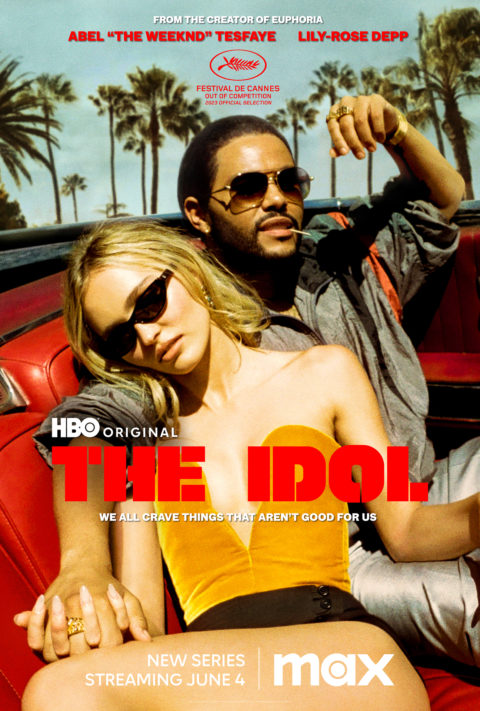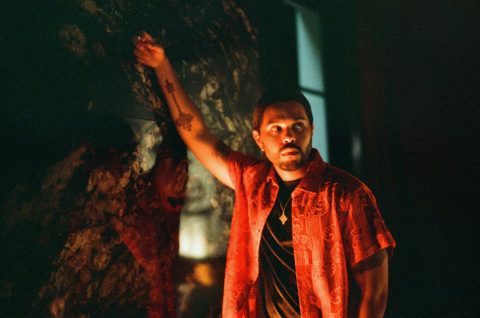Why Is The Idol So Controversial?
Ahead of its anticipated release, HBO’s buzzy new series has been shrouded in off-screen drama.
Is all press really good press? After premiering with a bang on the French Riviera, The Idol would argue oui. At the 2023 Cannes Film Festival on May 22, HBO’s upcoming series made a momentous debut with opulent red-carpet fashion followed by a five-minute standing ovation. But as its release date fast approaches, alarming rumours surrounding the show have only intensified. Here’s what you should know about The Idol controversy.
What is The Idol about?
Created by Abel Tesfaye (The Weeknd), his producing partner Reza Fahim, and Euphoria creator Sam Levinson, The Idol is positioned as a cautionary tale about showbiz and the seedy underbelly of Hollywood. It centres on Jocelyn, a troubled pop star played by Lily-Rose Depp, who gets entangled with Tesfaye’s predatory cult leader character, Tedros. Also starring in the show are Dan Levy, Troye Sivan, Da’Vine Joy Randolph, Eli Roth, Blackpink’s Jennie Ruby Jane and Hari Nef. Starting June 4, the six-episode series will be available on HBO. New episodes will drop every Sunday, meaning The Idol is following in the footsteps of HBO’s previous internet-dominating hits like Succession, The White Lotus, and Euphoria, which all had the coveted Sunday night streaming spot. In other words, it’s going to be big.

What’s the controversy around The Idol?
It all started in April 2022, when it was revealed that director Amy Seimetz was dropping out of the project after roughly 80 per cent of it was finished and a rumoured $54 to 75 million had been spent. Following the announcement of a creative overhaul, HBO appointed Levinson as The Idol’s new director — and he reportedly scrapped the entire thing. There was no one clear reason given for this change, but reports claim that Tesfaye felt the show was leaning too much into a “female perspective.”
The underlying air of uncertainty surrounding its production came to a fever pitch in March 2023 when Rolling Stone released an exposé about the troubling on-set culture and the script’s descent into chaos, at the hands of Levinson. After interviewing 13 members of the cast and crew, the publication reported that the director watered down the show’s message by “dialling up the disturbing sexual content and nudity.” As a result, sources claimed that the show romanticizes abuse, with some describing it as a “rape fantasy” and “torture porn.”

Essentially, what was originally a story about the trappings of fame and the exploitation of women was weakened to “a show about a man who gets to abuse this woman and she loves it,” as one source told Rolling Stone. Notably, HBO and the stars of the show have since pushed back on these claims. Depp released a statement to Rolling Stone praising Levinson as a director, while Tesfaye took a more public approach, tweeting a clip from the show in which his character calls the publication “irrelevant.” Cut to nearly three months in the future: incoming reviews of The Idol seem to align with Rolling Stone’s claims (but more on that later).
What’s Sam Levinson’s deal?
For starters, being provocative is kind of his whole shtick. After a meteoric rise to fame following Euphoria’s trendsetting success, the director’s work has been increasingly scrutinized. Even loyal Euphoria fans tend to have a fraught relationship with Levinson, as his storytelling style on the show has been criticized for exploiting trauma, over-sexualizing women (who are playing teenagers), and pushing triggering mental health content. Along with its beloved trance-inducing cinematography and escapist energy, Euphoria has also garnered a reputation for blurring the boundaries of what is ethical. And now, The Idol is being called a more extreme version of that.
What are critics saying about The Idol?
Ahead of its release, reviews are doubling down on murmurs of The Idol’s on-screen messiness. Vulture, for instance, cites “porn-adjacent” sex scenes, reductive writing and nearly constant nudity or partial nudity from Depp’s Jocelyn, while the male characters remain fully clothed. As the backlash ramps up, so too does the buzz — and perhaps that’s the point. At a press conference in Cannes, when asked about how he avoided taking sex scenes too far, Levinson reportedly replied, “Sometimes, things that might be revolutionary are taken too far.” Later, he revealed that after reading the scathing Rolling Stone feature, he felt assured that The Idol would be “the biggest show of the summer.”

So, what can viewers expect from The Idol?
Hyper-aestheticized storytelling is Sam Levinson’s calling card…so lots of that. After all, Euphoria’s undeniable influence is first and foremost rooted in kaleidoscopic visuals and a hypnotic soundtrack. Regardless of the show’s writing letdowns, it has always delivered irresistibly watchable vibes. Already brimming with tantalizing fashion and hazy imagery, it seems The Idol and its plot-point extremities are set to follow the same winning formula. Will it be successful? Should it be? Only time will tell.






